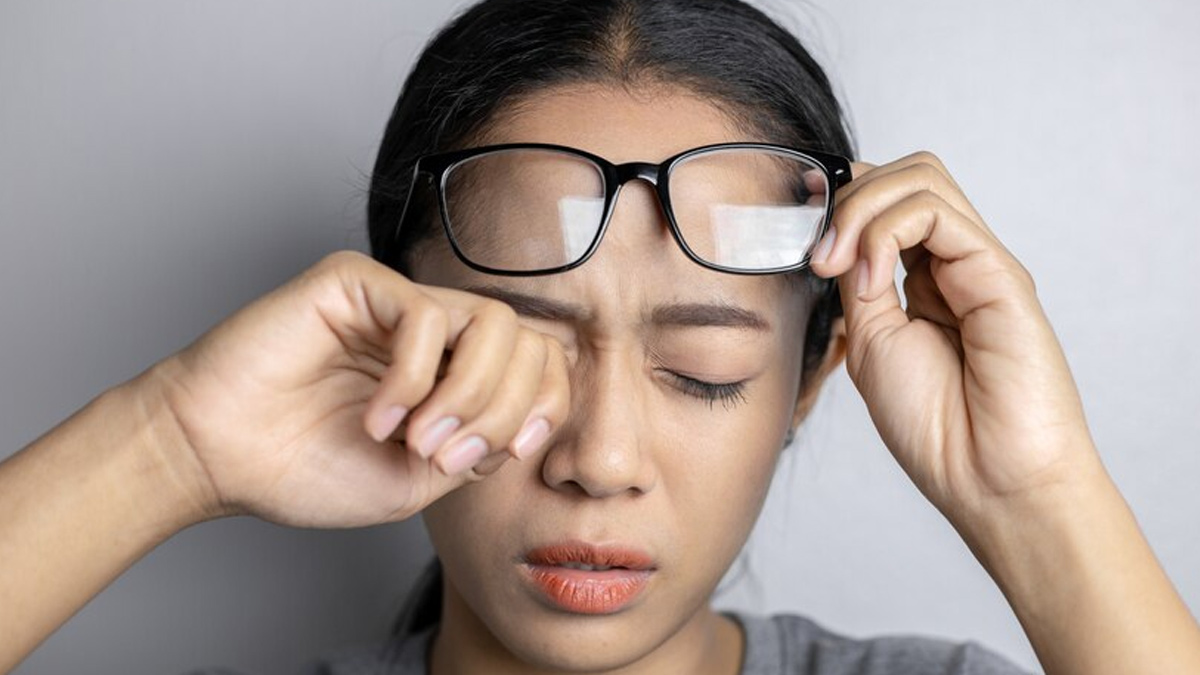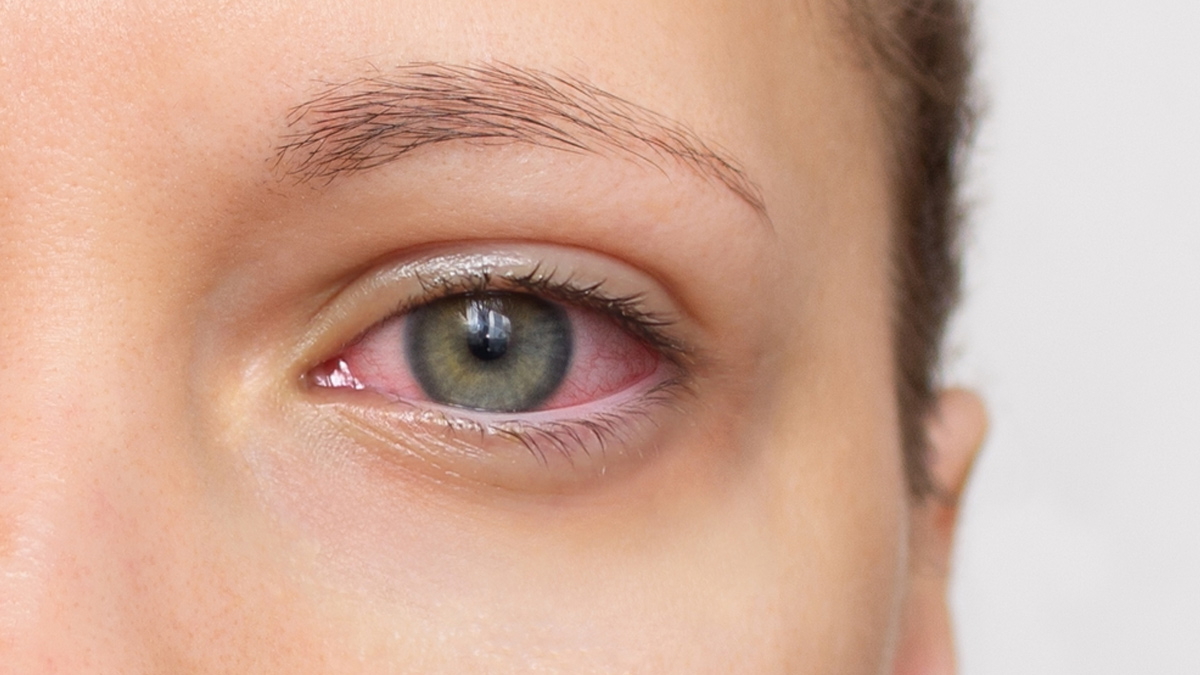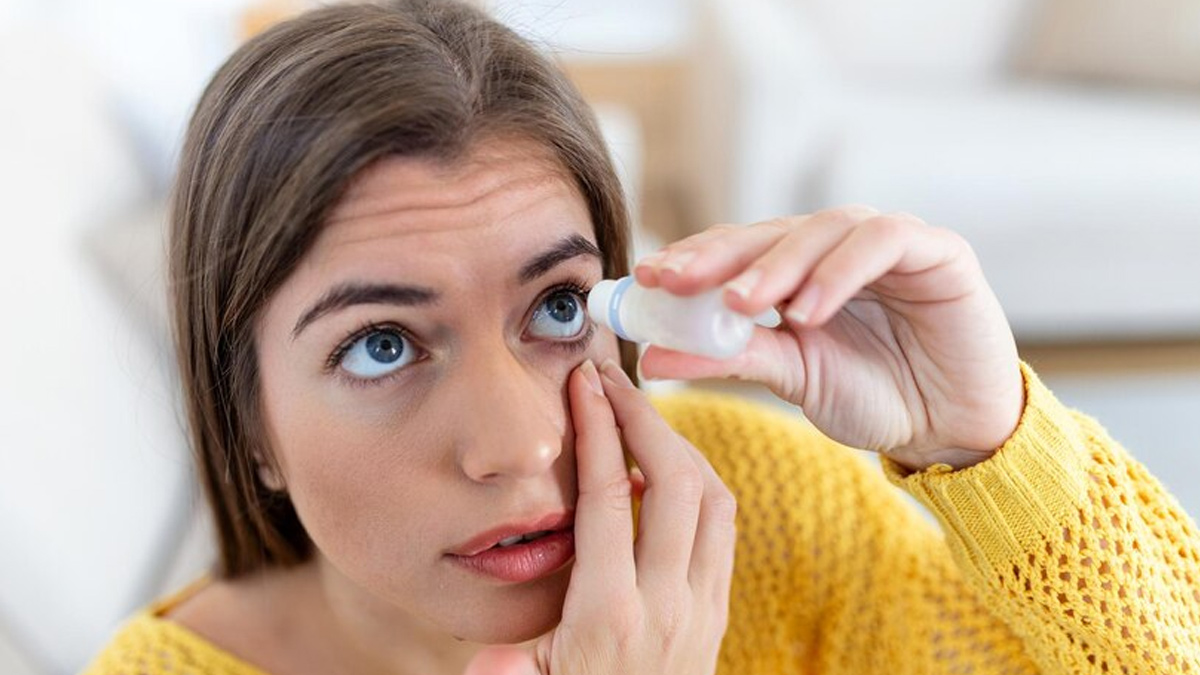
As the chill of winter sets in, many people experience a peculiar heaviness in their eyes.. However, the season often brings challenges for our eyes, leading to a sensation of heaviness. The sensation, often accompanied by dryness, irritation, or fatigue, can dampen the joy of cosy winter days. This common complaint is usually a result of environmental and lifestyle factors.
Table of Content:-
To understand the cause behind feeling heaviness in eyes during winters and how we can prevent and manage this discomfort, OnlyMyHealth team interacted with Dr Niren Dongre, Consultant Ophthalmology, Kokilaben Dhirubhai Ambani Hospital, Mumbai.
Causes of Eye Heaviness in Winters
Dr Dongre explains that several factors contribute to this sensation, with the primary culprits being cold weather, low humidity levels, and exposure to indoor heating systems. These conditions affect our eyes in the following ways:
1. Dry Eyes

Winter air is less humid, and indoor heating further depletes moisture levels. Combined, these factors lead to dry eyes, a key cause of heaviness. Dr Dongre elaborates, “Dry eyes are characterised by irritation, redness, a burning sensation, and sensitivity to light. The lack of adequate lubrication causes a heavy, tired feeling in the eyes.”
2. Eye Fatigue
With shorter daylight hours, people often spend more time indoors engaging in activities like reading, watching TV, or working on screens. Prolonged screen time can lead to eye fatigue, further exacerbating the feeling of heaviness.
3. Eye Allergies

Dust, mould, and indoor allergens that accumulate in closed spaces during winter can cause eye allergies. Symptoms include itching, redness, and watering, which contribute to overall discomfort.
4. Contact Lens Dryness
“Contact lenses tend to dry out faster in winter due to the cold, dry air and reduced blinking during screen use. This can result in blurry vision and eye discomfort,” Dr Dongre points out.
Also read: Dry Eyes And Headaches: Expert Explains The Connection Between The Two
Tips to Prevent and Manage Winter Eye Heaviness
To combat winter-related eye issues, Dr Dongre suggests simple yet effective solutions:
For Dry Eyes:

- Humidify your space: Use a humidifier to maintain optimal moisture levels indoors.
- Artificial tears: Lubricating eye drops can provide immediate relief.
- Protective eyewear: Wearing glasses or goggles outdoors shields eyes from cold winds.
- Stay hydrated: Drink plenty of water to support overall eye hydration.
- Limit screen time: Reducing prolonged exposure to screens can minimise dryness and strain.
For Eye Fatigue:
Follow the 20-20-20 rule: Every 20 minutes, look at something 20 feet away for 20 seconds to relax your eyes.
Adjust lighting: Avoid glare and ensure your workspace is well-lit.
Use blue light filters: Glasses or screen protectors that filter blue light reduce strain.
For Allergies:
Clean your environment: Regular cleaning and air purifiers can reduce allergens.
Avoid rubbing eyes: This habit can worsen irritation.
Antihistamine drops: Consult a doctor before using these to relieve allergy symptoms.
For Contact Lens Users:

Switch to daily disposables: These are more comfortable in dry conditions.
Use rewetting drops: They help keep lenses moist.
Limit wear time: Opt for glasses when possible to allow your eyes to rest.
Also read: Castor Oil For Dry Eyes: Here's How This Oil Benefits Your Eyes And How To Use It
A Holistic Approach to Winter Eye Care
Beyond these specific remedies, maintaining overall eye health during winter is essential. Dr Dongre advises incorporating a balanced diet rich in omega-3 fatty acids, vitamin A, and antioxidants. Regular eye check-ups can help identify and address issues early.
“Minor adjustments to your daily routine can go a long way in keeping your eyes healthy and comfortable during winter,” he concludes.
Conclusion
The heaviness you feel in your eyes during winter isn’t just a seasonal nuisance—it’s a sign your eyes are reacting to environmental changes. By understanding the causes and adopting these expert-recommended tips, you can ensure your eyes remain refreshed and comfortable throughout the season. Remember, your eyes are precious; a little care now can go a long way in protecting them.
Also watch this video
How we keep this article up to date:
We work with experts and keep a close eye on the latest in health and wellness. Whenever there is a new research or helpful information, we update our articles with accurate and useful advice.
Current Version